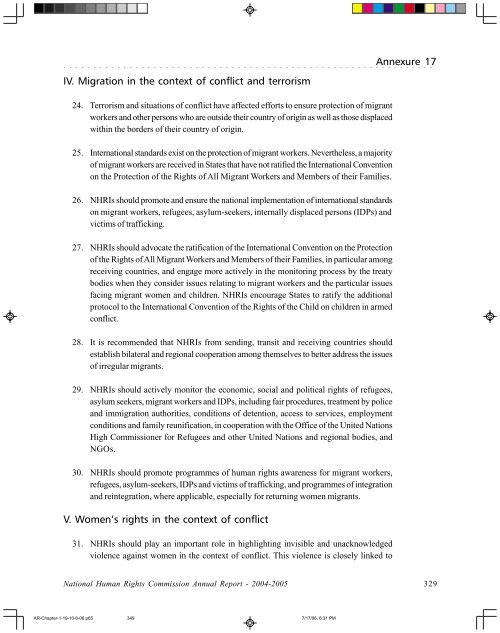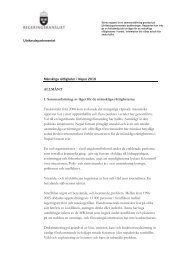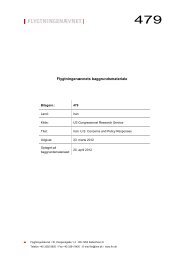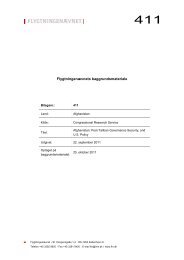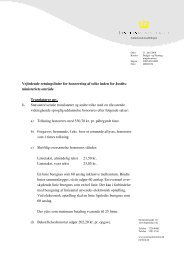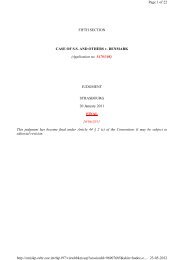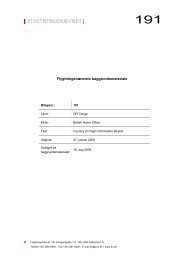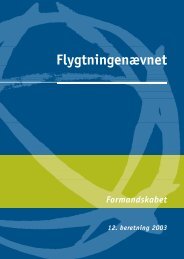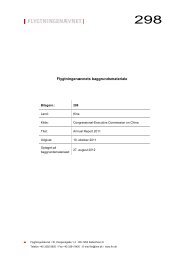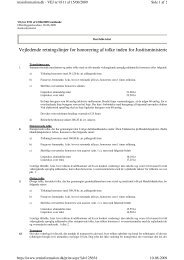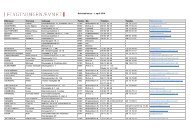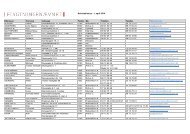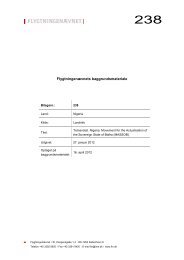Annual Report - National Human Rights Commission
Annual Report - National Human Rights Commission
Annual Report - National Human Rights Commission
You also want an ePaper? Increase the reach of your titles
YUMPU automatically turns print PDFs into web optimized ePapers that Google loves.
Annexure 17<br />
○ ○ ○ ○ ○ ○ ○ ○ ○ ○ ○ ○ ○ ○ ○ ○ ○ ○ ○ ○ ○ ○ ○ ○ ○ ○ ○ ○ ○ ○ ○ ○ ○ ○ ○ ○ ○ ○ ○ ○ ○ ○ ○ ○ ○ ○ ○ ○ ○ ○ ○ ○ ○ ○ ○ ○ ○ ○ ○ ○ ○<br />
○<br />
IV. Migration in the context of conflict and terrorism<br />
24. Terrorism and situations of conflict have affected efforts to ensure protection of migrant<br />
workers and other persons who are outside their country of origin as well as those displaced<br />
within the borders of their country of origin.<br />
25. International standards exist on the protection of migrant workers. Nevertheless, a majority<br />
of migrant workers are received in States that have not ratified the International Convention<br />
on the Protection of the <strong>Rights</strong> of All Migrant Workers and Members of their Families.<br />
26. NHRIs should promote and ensure the national implementation of international standards<br />
on migrant workers, refugees, asylum-seekers, internally displaced persons (IDPs) and<br />
victims of trafficking.<br />
27. NHRIs should advocate the ratification of the International Convention on the Protection<br />
of the <strong>Rights</strong> of All Migrant Workers and Members of their Families, in particular among<br />
receiving countries, and engage more actively in the monitoring process by the treaty<br />
bodies when they consider issues relating to migrant workers and the particular issues<br />
facing migrant women and children. NHRIs encourage States to ratify the additional<br />
protocol to the International Convention of the <strong>Rights</strong> of the Child on children in armed<br />
conflict.<br />
28. It is recommended that NHRIs from sending, transit and receiving countries should<br />
establish bilateral and regional cooperation among themselves to better address the issues<br />
of irregular migrants.<br />
29. NHRIs should actively monitor the economic, social and political rights of refugees,<br />
asylum seekers, migrant workers and IDPs, including fair procedures, treatment by police<br />
and immigration authorities, conditions of detention, access to services, employment<br />
conditions and family reunification, in cooperation with the Office of the United Nations<br />
High <strong>Commission</strong>er for Refugees and other United Nations and regional bodies, and<br />
NGOs.<br />
30. NHRIs should promote programmes of human rights awareness for migrant workers,<br />
refugees, asylum-seekers, IDPs and victims of trafficking, and programmes of integration<br />
and reintegration, where applicable, especially for returning women migrants.<br />
V. Women’s rights in the context of conflict<br />
31. NHRIs should play an important role in highlighting invisible and unacknowledged<br />
violence against women in the context of conflict. This violence is closely linked to<br />
<strong>National</strong> <strong>Human</strong> <strong>Rights</strong> <strong>Commission</strong> <strong>Annual</strong> <strong>Report</strong> - 2004-2005<br />
329<br />
AR-Chapter-1-19-10-6-06.p65<br />
349<br />
7/17/06, 6:31 PM


